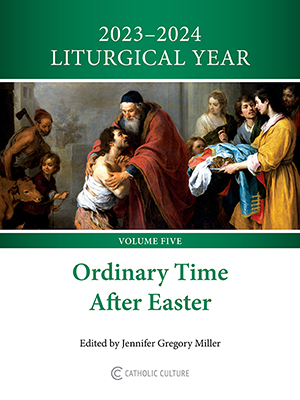'Tis the season
By Diogenes ( articles ) | Dec 13, 2005
... and Eng. Lit. fans will be delighted to learn that Max Beerbohm's A Christmas Garland is now available online in its entirety. The book is collection of parodic Christmas stories, each written in the eerily exact manner of English authors well-known at the turn of the last century. Uncle Di's favorite is Beerbohm's pastiche of Henry James -- arguably the most brilliant parody ever penned -- but his friendly spoof of G.K. Chesterton is excellent as well, sometimes closer to Chesterton than Chesterton himself. A sampling:
That it is human to err is admitted by even the most positive of our thinkers. Here we have the great difference between latter-day thought and the thought of the past. If Euclid were alive to-day (and I dare say he is) he would not say, "The angles at the base of an isosceles triangle are equal to one another." He would say, "To me (a very frail and fallible being, remember) it does somehow seem that these two angles have a mysterious and awful equality to one another." The dislike of schoolboys for Euclid is unreasonable in many ways; but fundamentally it is entirely reasonable. Fundamentally it is the revolt from a man who was either fallible and therefore (in pretending to infallibility) an impostor, or infallible and therefore not human.
Now, since it is human to err, it is always in reference to those things which arouse in us the most human of all our emotions -- I mean the emotion of love -- that we conceive the deepest of our errors. Suppose we met Euclid on Westminster Bridge, and he took us aside and confessed to us that whilst he regarded parallelograms and rhomboids with an indifference bordering on contempt, for isosceles triangles he cherished a wild romantic devotion. Suppose he asked us to accompany him to the nearest music-shop, and there purchased a guitar in order that he might worthily sing to us the radiant beauty and the radiant goodness of isosceles triangles. As men we should, I hope, respect his enthusiasm, and encourage his enthusiasm, and catch his enthusiasm. But as seekers after truth we should be compelled to regard with a dark suspicion, and to check with the most anxious care, every fact that he told us about isosceles triangles. For adoration involves a glorious obliquity of vision. It involves more than that. We do not say of Love that he is short-sighted. We do not say of Love that he is myopic. We do not say of Love that he is astigmatic. We say quite simply, Love is blind. We might go further and say, Love is deaf. That would be a profound and obvious truth. We might go further still and say, Love is dumb. But that would be a profound and obvious lie. For love is always an extraordinarily fluent talker. Love is a wind-bag, filled with a gusty wind from Heaven.
Convinced?
All comments are moderated. To lighten our editing burden, only current donors are allowed to Sound Off. If you are a current donor, log in to see the comment form; otherwise please support our work, and Sound Off!








